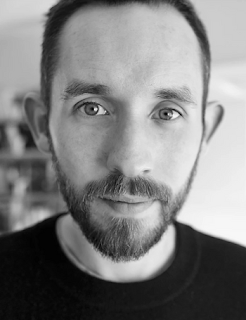conversations in ten questions 78: Kristofer Blindheim Grønskag
What is the essence of good play/playwriting in your opinion?
Good playwriting is ways of exploring different truths about the world. To find a truth and hold on to it, no matter which form or style.
Do you believe in the transformative power of art? How?
I do believe art has the ability to change people. And we are, for better or worse, the world. If I did not believe in this, I would find a different job.
When you are working on a text, what sources inspire you? Do dreams play a role in your works?
Although my academic background is very much inspired by both absurdism and surrealism, dreams are not that important to me. I always try to read a lot in periods of intensive writing. Often playwrights, but also other authors. From the assembled mass of inspiration and own thoughts, I often get these images stuck in my head. Images that won’t leave me. It could be the picture of someone sitting in an ice cream truck with blood on their hands, or perhaps someone slipping down into an open grave due to heavy rain on the funeral day. These images usually hold great significance for me in my work. I have learned to trust them, although they may seem dreamlike and mysterious.
When do you decide to give a title to a work you are working on if it already does not have one?
It depends. For me this is something to do with when the subject matter becomes clear for me. And also how this subject matter is connected with the form or movement of the play. When this connection is clear to me, then the title often comes along as well.
Are there any writer, artist or person whom you think influenced your art most? And if there is such a figure, who?
I am in debt to so many small and big helpers along the way. But I think perhaps I found a kindred of some kind the first time I read the playwright Dennis Kelly. For me, his dark, clear cut situations full of grief, anger and love, combined with his talent for making plays move in beautiful ways, was a huge inspiration at the time. I still revisit his writing now and again.
When you consider the current state of the world in every sense, what is the most important and urgent issue for you as an artist?
I feel my person being split in two. One part is me besides my work. This part has the need and ability to do acts of activism. To revolt against political decisions leading to increased climate change, deepening inequalities and attempts to reduce basic human rights. The other part, the playwright, needs to deal with these issues in a different way. More subtle, more mysterious, more open, with the possibility to explore the grey areas, rather than right or wrong. In art, moralism is the immorality of ethics.
What are your main concerns when a play of yours is translated into another language?
I try to add lots of dark apathy, humor and understatements in my plays. This falls very natural for me being from my part of Norway. One rarely show big displays of emotions, but instead let a dark undercurrent of humor carry the emotions. I always hope this comes across in my translations.
Do you believe your works resonate more with your local culture/community or more universally?
I have found that the more locally I think I write, the more it (sometimes) resonate with people other places. I think there is something Norwegian in my writing, and I hope people like to visit it with me for a while.
You write plays for children and young people as well as for adults. Is there a difference in approach between the two in terms of design and writing processes?
In writing for a young audience, I find myself less tied to conventions. The work slides along with the phantasy in a more fluent way than in writing for adults. Also, in writing for a young audience, I feel the need to be even more truthful. We see the same world as children. We sometimes have the same challenges. But we deal with these in different ways. In presenting how to deal with these issues, we have the responsibility not to lie to them. We can dream and we can show hope, but not lie.
Do you have any expectations from the Turkish directors who will be staging your play’s reading?
Most of all I just really look forward to see their work, and the actors’ work. Perhaps get a glimpse of the truths they have found in the text. And I look forward to sit with the audience and share a common experience in the darkness of the theater.
[The Turkish version of this interview was published in unlimited.]




Comments
Post a Comment